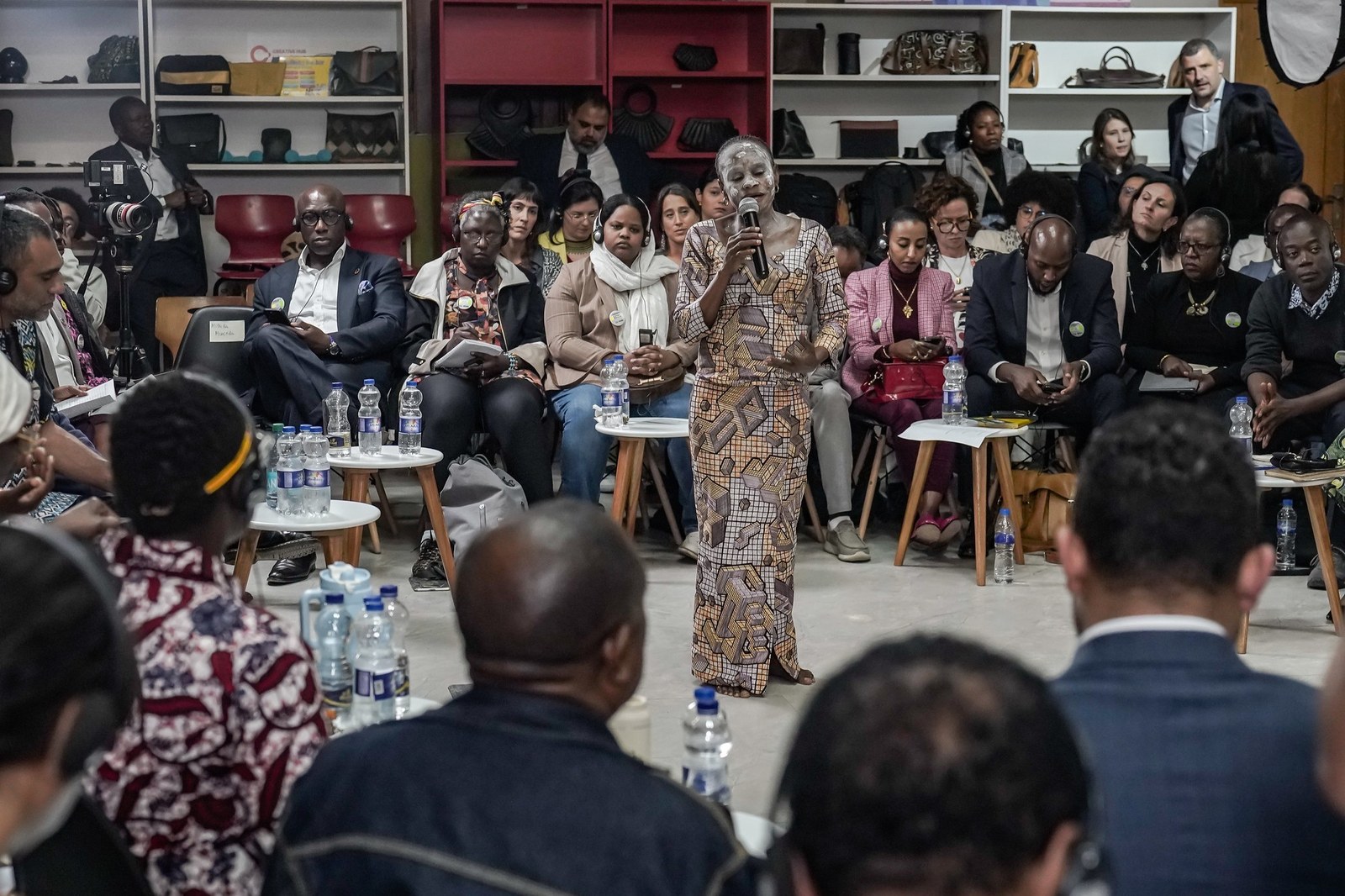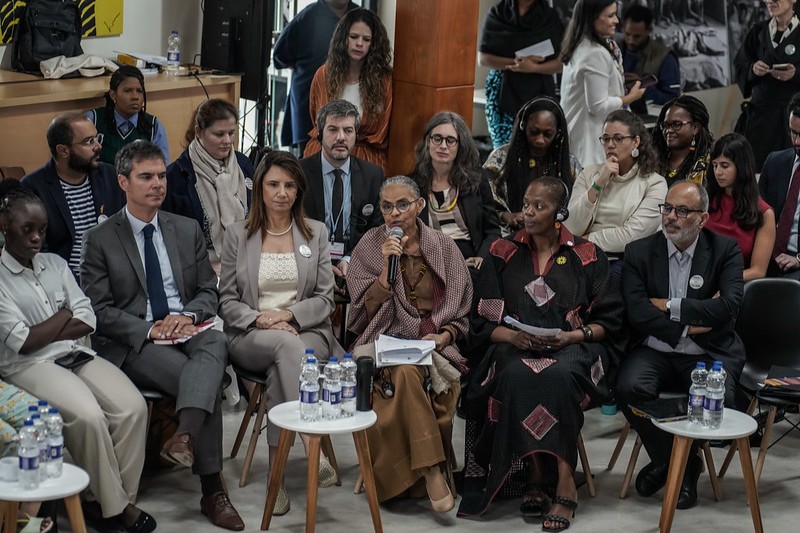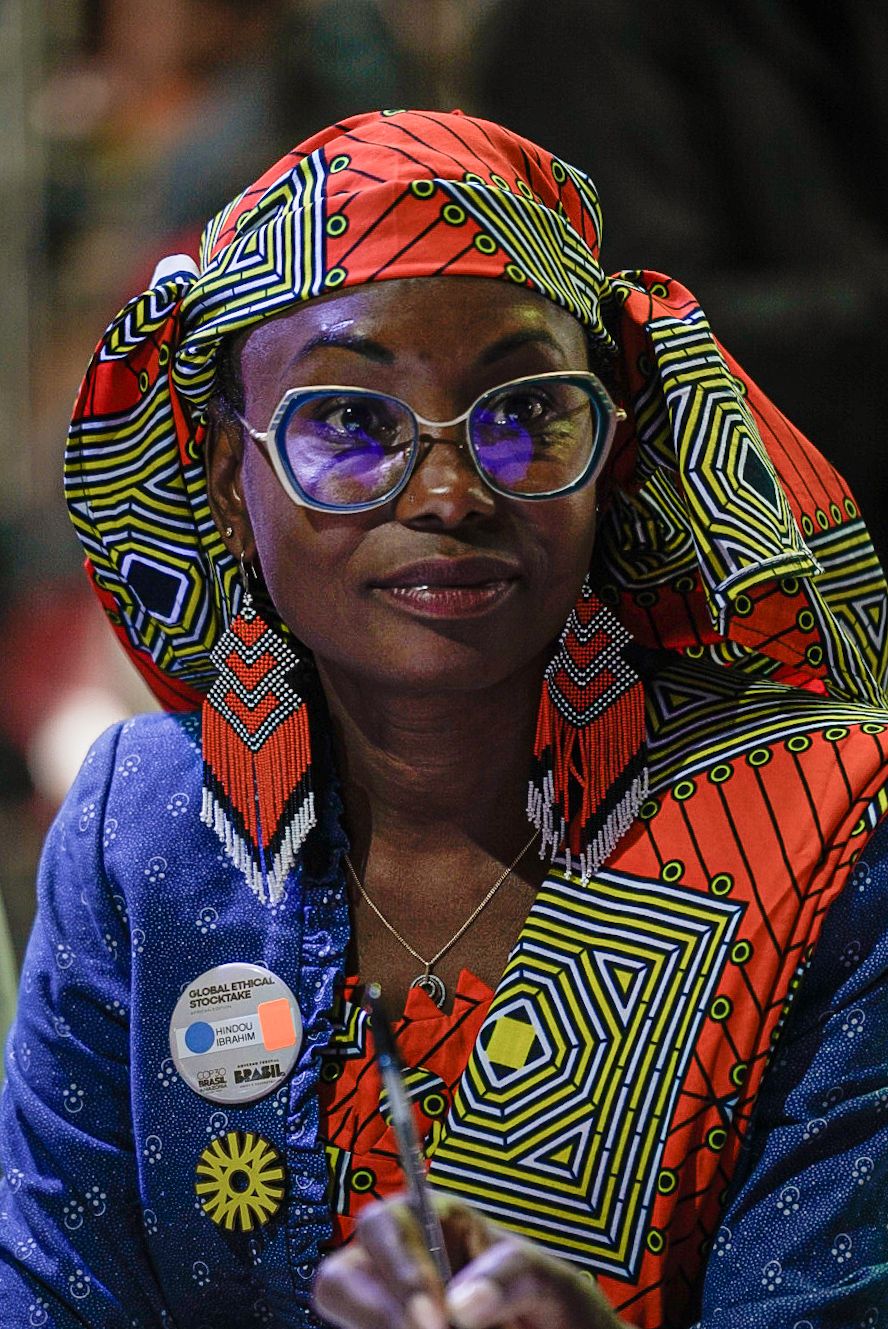Global Ethical Stocktake Calls on World to Fulfill Promises and Acknowledges African Leadership
At Africa Climate Week in Addis Ababa, the Global Ethical Stocktake exposed stark inequalities: Africa emits less than 4% of global emissions, yet 600 million people live without access to energy. Even so, countries allocate 2% of their GDP to adaptation and demand climate justice on the road to COP30

By Leandro Molina / COP30 Brasil
With a tone of urgency but also firm determination, Brasil’s Minister of the Environment and Climate Change, Marina Silva, and the Director for Africa and Partnerships at the World Resources Institute (WRI), Wanjira Mathai, opened the fourth Global Ethical Stocktake, held during Africa Climate Week in Addis Ababa, Ethiopia, with a call to action. The two Global Ethical Stocktake co-leaders emphasized that the world must honor its financial commitments, and that Africa is ready to lead with its own solutions in the fight against the climate crisis. “This is not about asking for favors, but about demanding climate justice. The promised resources are essential for developing countries, especially in Africa, to implement their Nationally Determined Contributions (NDCs) and build resilience,” said Marina.
The response to the climate emergency requires more than science and technology: it also demands an ethical reflection on responsibility, solidarity, and justice. This is the guiding principle behind the Global Ethical Stocktake in Ethiopia. The initiative was launched by President Luiz Inácio Lula da Silva and UN Secretary-General António Guterres, with support from the COP30 Presidency and the Brazilian government.
Wanjira Mathai, a Kenyan environmentalist and activist, daughter of the first African woman to win the Nobel Peace Prize, shared her perspective by highlighting a contradiction on the continent. “ Africa contributes less than 4% of global emissions, yet it suffers the most from devastating impacts—from prolonged droughts to catastrophic floods. However, our vulnerability is matched by our immense capacity to offer nature-based and clean energy solutions," she noted.
This duality served as the backdrop for the presentation of concrete data during the event that brought together representatives from 19 African countries in Addis Ababa. It was highlighted that, despite receiving less than 12% of the promised global climate funding, African countries already invest, on average, 2% of their GDP annually in climate adaptation—a disproportionate amount when compared to their historical contribution to the problem. The collective message was conveyed to affirm that Africa is not a mere passive recipient of aid, but a crucial strategic partner.
Wanjira Mathai highlighted the profound significance of Brasil hosting COP30, far beyond the fact that the conference will be held in the Amazonia biome. According to her, the solution involves addressing issues of trust, inequity, and ethics that have been widely discussed. She advocates for a transformative shift in the global approach to the crisis to mitigate the most severe impacts.
Regenerative Agriculture, Green Industrialization, and Clean Energy
Africa Climate Week and the Climate Summit in Ethiopia represent a pivotal moment for the African continent, which is transitioning from being perceived solely as a victim of climate change to taking a leadership role in global solutions. This emerging narrative affirms that, despite not bearing the same historical responsibility for the crisis, Africa is an indispensable part of the global response.

Carlos Lopes, professor at the University of Cape Town and Special Envoy of the Brazilian COP30 Presidency to Africa, reiterated the continent’s evolving narrative—from victim of climate change to leader in global solutions. He emphasized that Africa’s challenges also represent strategic opportunities. One such example is energy generation: a gap that can be addressed directly through renewable sources, bypassing the polluting models of the past. Mr. Lopes stated that the continent offers the world solutions rooted in its vast natural potential, including the largest maritime zone globally, a well-preserved blue economy, and a unique tradition of environmental stewardship. Its challenges—such as the 600 million people still lacking access to electricity—are, in fact, opportunities to scale up renewable energy and leapfrog carbon-intensive pathways.
The Special Envoy outlined three pillars for African action: regenerative agriculture that safeguards soil health; green industrialization; and the sustainable closing of the energy infrastructure gap. 'The expectation for COP30 in Brasil is that it will be a summit of implementation—one that translates promises into tangible action and delivers benefits both for the planet and for Africa’s development.
Leaders from Kenya and Rwanda outlined their progress in circular economy policies and sustainable waste management, turning a challenge into an economic opportunity. The Great Green Wall—an environmental initiative led by African nations aimed at halting desertification and restoring 100 million hectares of degraded land in the Sahel, a vast semi-arid region south of the Sahara Desert—was repeatedly cited not only as a mitigation project, but also as a driver of food security and green job creation for millions of people.
Ambassador André Corrêa do Lago, President of COP30, praised the 'Global Ethical Stocktake,' describing it as "particularly inspiring." He highlighted Africa’s vast diversity, while also commending the continent’s ability to speak with "one voice"—a remarkable achievement given that its borders were historically drawn by colonial powers. In reflecting on Africa’s contribution to COP30, he acknowledged the profound irony: the continent has contributed the least to climate change, yet it is among those most severely affected by its extreme consequences.
Corrêa highlighted that Africa’s proposals are unique, emerging from a region that remains predominantly agricultural—contrasting with Brasil’s reality, where 87% of the population is already urbanized. Nonetheless, he views this as a historic opportunity: 'Africa has the chance to do things right—things other continents failed to do.' He expressed confidence in the awareness among African leaders of the continent’s potential to pursue sustainable development.
Leaders emphasized that effective solutions must begin with the recognition of Indigenous peoples and local communities as custodians of traditional knowledge and stewards of nature—not victims. The extraction of minerals for the energy transition, which fails to benefit Africa, was strongly criticized. The call for climate finance was framed not as an act of charity, but as a moral obligation of historically high-emitting countries, with resources directed to communities to ensure justice and equity. The closing message affirmed that no solution will be truly effective without listening to nature and honoring ancestral wisdom.
Indigenous Wisdom as a Guide

In a heartfelt and emphatic address, Chadian environmental activist Hindou Oumarou Ibrahim affirmed that Indigenous knowledge is a fundamental and ethical pillar in addressing the global climate crisis. She argued that mechanisms such as the COP dialogue must "place people at the center to protect the Earth. "Ibrahim described ancestral wisdom—rooted in forests, oceans, savannas, deserts, and mountains—as a vital and "actionable" resource for keeping global warming within the 1.5°C target. She emphasized Africa’s critical role in the global ecosystem, citing the Congo Basin—the continent’s largest forest—as a protective shield for the planet. The activist drew a natural and human connection between Africa and Brasil, stating: "This is how the planet is. There are no borders. We are all one", he declared.
Finally, Oumarou Ibrahim emphasized the central role of Indigenous women in transmitting intergenerational knowledge. For her, sharing this traditional wisdom is key to preserving culture and addressing climate challenges.
Upon hearing the accounts shared by country representatives, Minister Marina Silva captured the spirit of the event, describing it as a space for nurturing challenges, concerns, commitments, and solutions. "It is as if we allowed ourselves to place our feet on the ground so they could become roots. And roots always seek what is basic, what is elemental, what is essential to nourish them." She acknowledged the contradictions and the strength of those opposing climate action, yet emphasized the power of solidarity and closeness.
Marina Silva outlined Brasil’s efforts, including a 46% reduction in Amazônia deforestation over the past two years, but cautioned that it is necessary to "break the inertia of the positive results achieved and go further, " as current commitments remain insufficient. "Twenty years ago, we began a plan that has now enabled us to affirm that zero deforestation is within reach, " she stated.
Climate Justice as a Demand, Not Charity
The message that resonated in Addis Ababa was unanimous: Africa is not asking for aid—it is demanding justice and partnership to lead, through its own solutions and in a decolonized manner, the construction of a more equitable climate future for all. The continent calls on developed nations not only to fulfill the long-standing commitment of US$100 billion annually, but to double the funds allocated for adaptation. Africa is rising not as a victim, but as the architect of its own green destiny.
The message that will reverberate from Addis Ababa to Belém is unequivocal: the climate crisis demands not only financing and technology, but also global solidarity and shared responsibility. In this spirit, the Global Ethical Stocktake seeks to make COP30 a turning point—one that integrates science, ethics, and social justice to raise climate ambition and ensure that the response to the crisis is more inclusive, equitable, and attuned to local realities.
This vision is shared by COP30 CEO Ana Toni, who reaffirmed Brasil’s commitment to building a climate conference rooted in proximity to the people, guided by the needs of the most affected populations—particularly those in Latin America, the Caribbean, and Africa. Ana Toni stated that the ethics forum serves as a foundation to bring courage and strength to the intense negotiations, moving beyond numbers and policies. "The goal is to channel collective inspiration into concrete and just actions," she affirmed.
The contributions gathered throughout 2025 as part of the Global Ethical Stocktake will culminate in a global report to be presented at COP30 in Belém, Pará, offering an ethical framework to guide political decision-making. In the African context, the dialogue brings together civil society, local communities, youth, Indigenous peoples, academics, and religious leaders.
